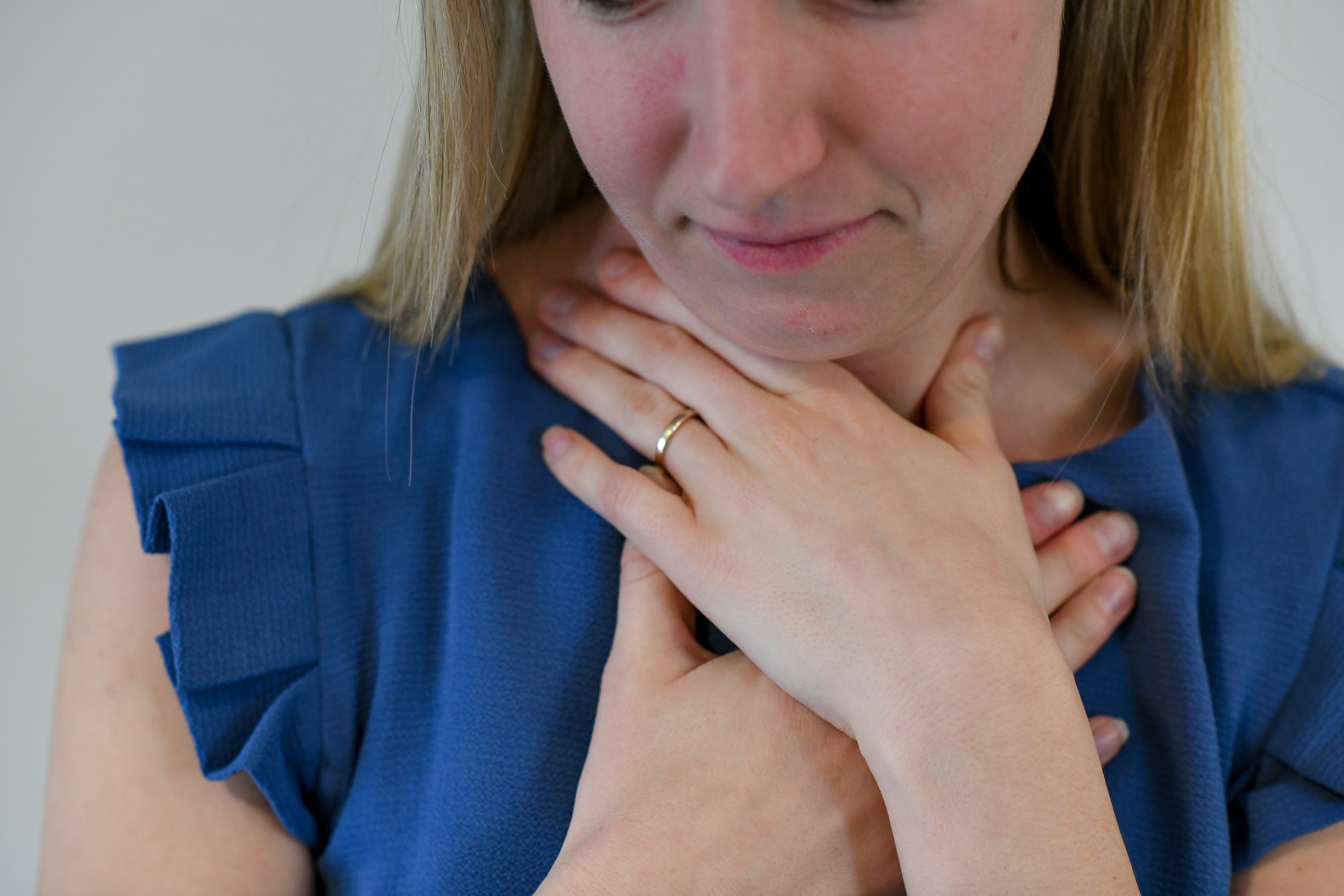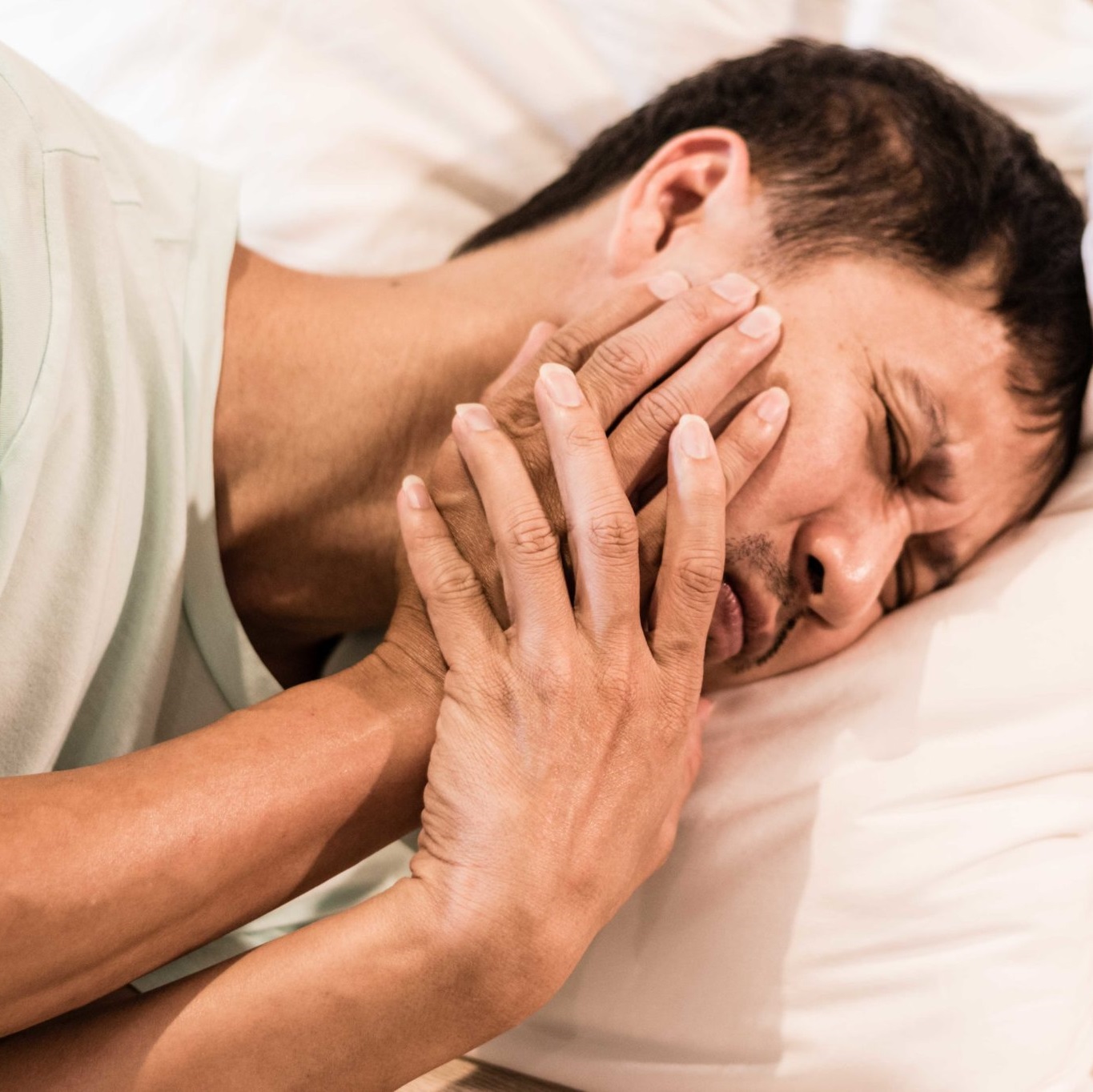Can Stress Cause Hiccups?

March 10, 2022
Hiccups can be an annoying disruption to your day, especially if you’re interrupted by an embarrassing “hic” when you’re talking to someone important. It may be hard to predict what might cause you to hiccup, although some people recognize that they may do it in response to emotional events. If this happens to you, it’s not your imagination; stress can cause hiccups in some people.
“While some people get the hiccups because they have swallowed air or as a side effect to certain medications, other people do get the hiccups sometimes when they are frightened, excited or surprised,” says internal medicine physician, Olufunke Olushoga, M.D.
Both children and adults may occasionally experience bouts of hiccups in response to stressful events. Read on to find out why stress is sometimes linked to the hiccups, plus what you may be able to do to stop the hiccups once you’ve gotten them.
Why stress may cause hiccups
People get the hiccups when the diaphragm – the muscle that separates the chest from the belly suddenly contracts – begins to spasm. Its movements are controlled by the phrenic nerve, which sends information from the brain to the diaphragm to help control breathing.
A stressful event, manifested as sudden excitement, nervousness, fear or shock may act as a trigger, causing the diaphragm to begin to spasm. When this happens, you take in air and your voice box closes shut, making the “hic” sound.
Hiccups that can be linked to an emotional reaction are typically short-lived, lasting less than 48 hours. There’s usually a medical reason why someone would have the hiccups for longer periods of time.
Other common causes of the hiccups
Most people who get the hiccups don’t notice an association between their hiccups and stressful events. Sometimes, certain medications may increase the risk of hiccups. Other times, lifestyle habits or health conditions may increase risk.
- Lifestyle habits which may trigger a bout of hiccups include:
- Eating or drinking too quickly
- Overeating
- Eating spicy food
- Eating very hot food after very cold food, or vice versa
- Sudden temperature change
- Drinking carbonated beverages
- Drinking alcohol
- Chewing gum
- Smoking
Some health conditions which may be linked to persistent hiccups include:
- Heartburn, acid reflux or gastroesophageal reflux disease
- Asthma
- Bronchitis
- Diabetes
- Shingles
- Certain forms of cancer
- Heart attack
- Some brain conditions such as a stroke
How to try to stop your hiccups
If you’re experiencing the hiccups, whether or not you got them in response to a stressful situation, you may be able to make them go away on your own. Common methods include:
- Holding your breath for five to 10 seconds (as tolerated)
- Breathing into a paper bag
- Bringing your knees up to your chest, then leaning forward for 30 seconds to one minute
- Swallowing a teaspoonful of table sugar
- Sipping or gargling with very cold water
- Biting into a lemon
“There are ways to modify some of the standard home remedies. With your mouth closed, hold your nostrils and try breathing out. When you do this, tighten your stomach muscles so it feels like you are bearing down. Hold this for five seconds,” Dr. Olushoga says. “Original or modified home remedies may not work for every person every time, but they’re worth trying.”
In most cases, the hiccups should go away on their own, or with your intervention, within a few minutes. If you experience the hiccups for two full days without relief, seek medical attention, in case they are a sign of a possible health condition that requires treatment.
Next Steps & Resources:
- Meet our source: Olufunke Olushoga, M.D.
- To make an appointment with Dr. Olushoga, or a doctor near you, call 800-822-8905 or visit our website.
The material provided through HealthU is intended to be used as general information only and should not replace the advice of your physician. Always consult your physician for individual care.
Find a doctor near me
What to Do When Coping Skills Don’t Work

Manage anxiety and stress? Dr. Markarian offers coping skills and strategies for better emotional well-being. Find support and resources now.
Drugs & Alcohol Are No Way to Cope

Heightened anxiety can manifest itself in a variety of harmful behaviors, not least among them the increased use of drugs and alcohol.
Find a doctor near me

What Is Neuro Fatigue?
Neuro fatigue explained. Learn about causes, treatments, and prevention strategies from Dr. Krupa Pandey. Schedule an appointment today.

What Does It Mean If You Grind Your Teeth at Night?
Sometimes when you’re feeling stressed or angry in the middle of the day, you may suddenly realize that you’ve been clenching your teeth together in response to your emotions.

Why Routines are Important for Mental Health
Maintain good mental health with daily routines. Dr. Solhkhah shares simple routines to reduce stress and anxiety. Learn more and schedule an appointment today.

How To Add a New, Healthy Habit to Your Life
Start a new healthy habit today. Dr. Halari offers simple tips for lasting change. Learn how to reach your goals. Call 800-822-8905.
